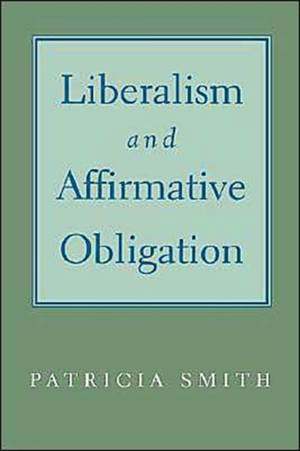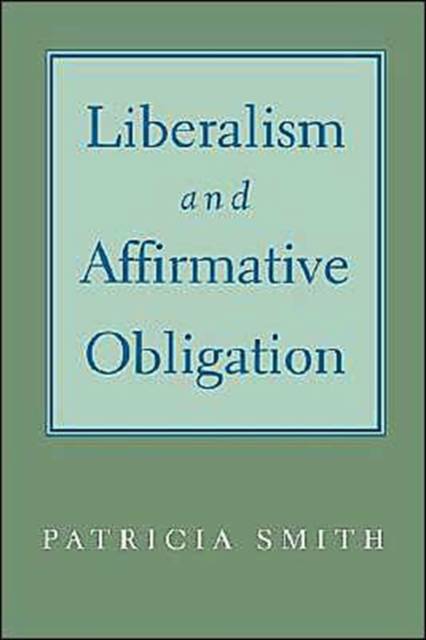
Bedankt voor het vertrouwen het afgelopen jaar! Om jou te bedanken bieden we GRATIS verzending (in België) aan op alles gedurende de hele maand januari.
- Afhalen na 1 uur in een winkel met voorraad
- In januari gratis thuislevering in België
- Ruim aanbod met 7 miljoen producten
Bedankt voor het vertrouwen het afgelopen jaar! Om jou te bedanken bieden we GRATIS verzending (in België) aan op alles gedurende de hele maand januari.
- Afhalen na 1 uur in een winkel met voorraad
- In januari gratis thuislevering in België
- Ruim aanbod met 7 miljoen producten
Zoeken
Omschrijving
The scope of affirmative obligation is a point of contention among liberals. Some see affirmative obligations required by social justice as incompatible with a strong commitment to individual freedom. The task before the moderate liberal is then to consider what a consistently liberal view of affirmative obligation would have to be in order to accommodate liberal commitments to freedom and justice and also account for long-standing institutions that are central to liberal democratic society. In this book, Patricia Smith argues that this can be achieved by reconstructing the liberal doctrine of positive and negative duty. She offers a careful consideration of these elements of liberal principles as they relate to affirmative obligation. Through an innovative analysis of the institutions of family and contract, Smith develops the idea of duties of membership as preferable to natural duties (to explain family obligation) and as needed to supplement contractual duties (to explain professional obligation). This idea is then applied to the problem of justifying political obligation. She argues that membership obligations, implied in cooperative endeavor, must supplement obligations of consent that are central to liberal theory. This is deftly illustrated through a state of nature theory that includes community membership, eliminating atomistic individualism while maintaining consonance with what Smith calls cooperative individualism. The resulting view of liberal individualism is consistent, complete, and capable of handling long-standing liberal institutions, while taking seriously the demands of affirmative obligations. Smiths clear articulation of a liberal view of affirmative obligation finds a middle ground on this polarized topic, with compelling and reasoned implications for liberal political philosophy. Her discussion will interest students and scholars of legal and political philosophy and political science.
Specificaties
Betrokkenen
- Auteur(s):
- Uitgeverij:
Inhoud
- Aantal bladzijden:
- 272
- Taal:
- Engels
Eigenschappen
- Productcode (EAN):
- 9780195115284
- Verschijningsdatum:
- 26/11/1998
- Uitvoering:
- Hardcover
- Formaat:
- Genaaid
- Afmetingen:
- 164 mm x 243 mm
- Gewicht:
- 566 g

Alleen bij Standaard Boekhandel
+ 235 punten op je klantenkaart van Standaard Boekhandel
Beoordelingen
We publiceren alleen reviews die voldoen aan de voorwaarden voor reviews. Bekijk onze voorwaarden voor reviews.









